Erythritol is a common alternative to sugar. But is has come under fire recently for potential health concerns. Is it still safe to eat? Let’s discuss.
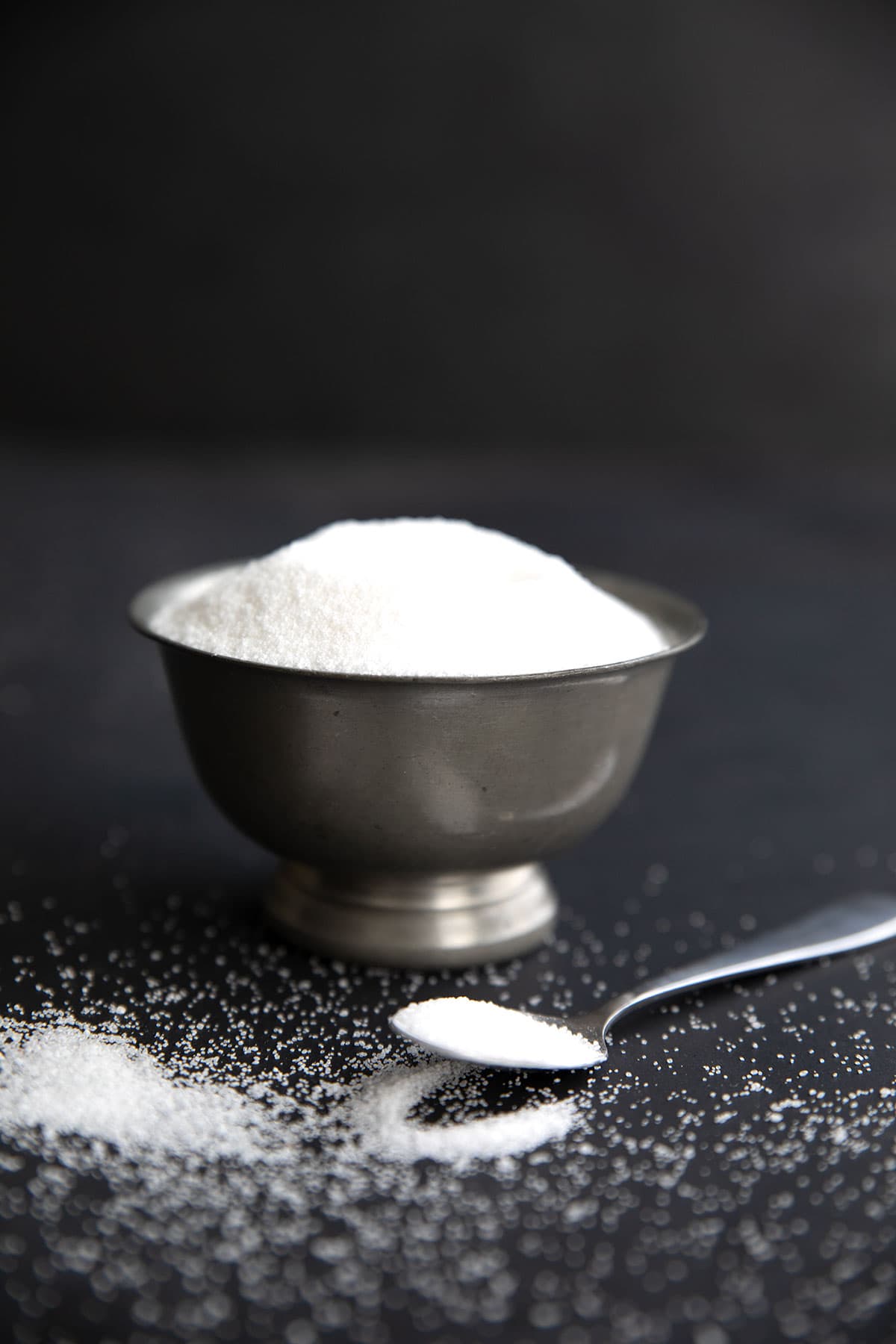
I have built a successful business and career on keto baking. I pride myself on my in-depth knowledge and understanding of low carb ingredients and how they behave. And many readers turn to me for advice on how to use these ingredients to get the best results.
One of those ingredients has recently come under fire (again). I’ve had numerous messages asking for my thoughts on the study about erythritol and blood clots. It has certainly raised concerns and I feel it is important enough to warrant a full discussion.
So let’s dig in.
Please note that I am not a medical professional, nor do I have any expertise in this matter. These are entirely my own thoughts and opinions, and should not be construed as medical advice. Readers are encouraged to consult with their physicians if they concerns.
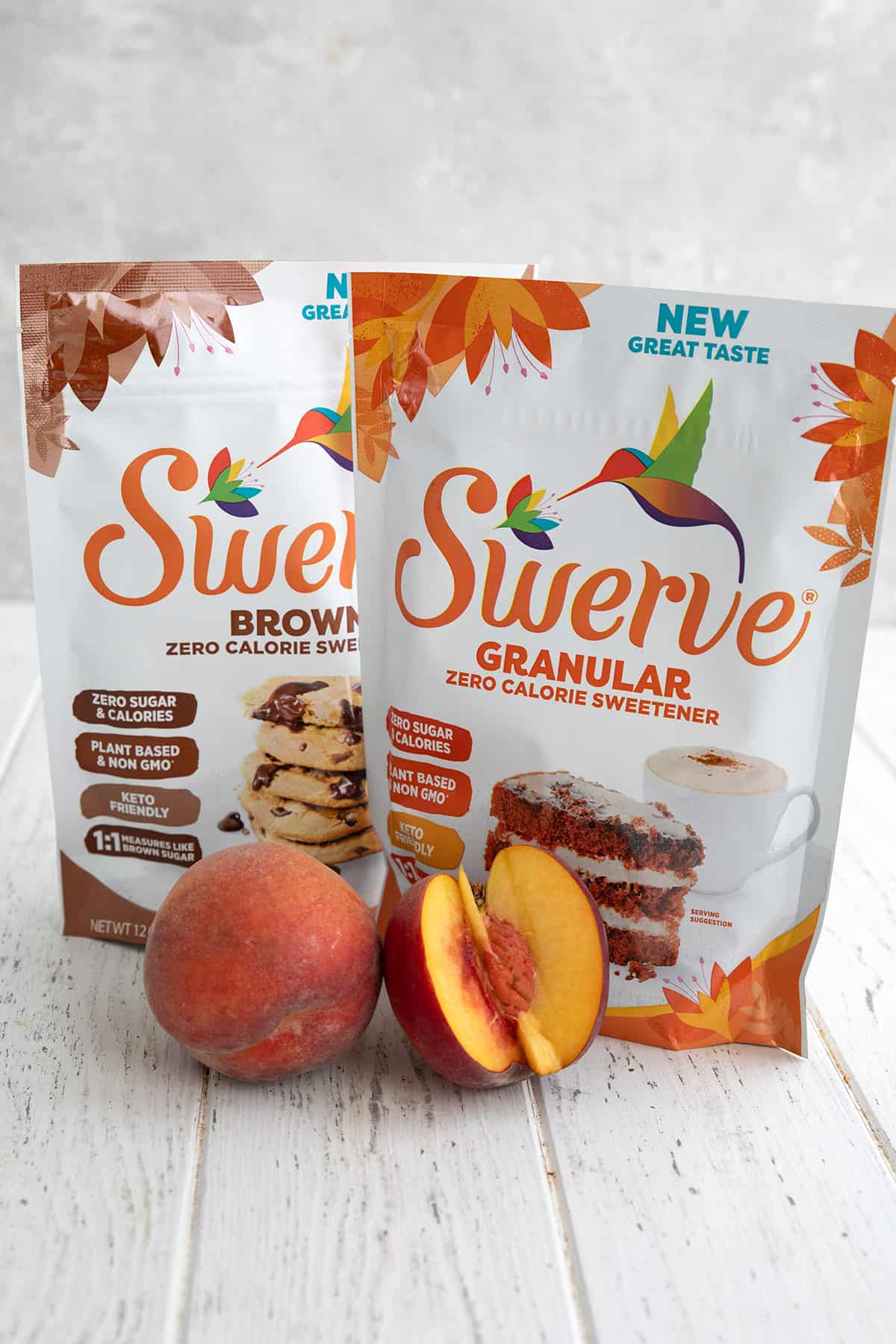
The study in question
In case you are unaware, erythritol was in the news recently because of a study that links consumption to blood clotting. This same association came up in 2023 in an observational study that had notable issues. The recent study, however, is a clinical trial. You can read the full article HERE.
The researchers compared two groups of 10 healthy participants (20 subjects total). The first group consumed 30g of erythritol in a water solution, the other group consumed 30g of glucose in a water solution. Their blood plasma was tested both before and after consumption. The group who consumed erythritol had a significant increase in “platelet aggregation responses”, indicating a greater tendency toward forming clots. The subjects who consumed the glucose solution saw no significant rise in these factors.
The researchers conclude that consumption of erythritol may enhance the risk of thrombosis events. This in turn increases the risk of heart attacks and strokes.

Study limitations
As with any clinical trial involving human subjects, this study has its limitations. And several of these are acknowledged by the authors themselves. Small sample size notwithstanding, I see some further issues that need to be recognized.
After digging into the original study, as well as reading some professional analyses, a few things jumped out at me. I will outline them as clearly as I can.
1. Amount of erythritol: The subjects drank solutions that contained either 30g of erythritol or 30g of glucose. That is a lot of erythritol to consume in one sitting! The authors state that they chose that amount because it’s “a quantity commonly found in erythritol-sweetened foods”. I take serious issue with this statement.
Granted, I do not use a lot of pre-packaged drinks and bars, but I have NEVER seen that amount in ANY product I have ever used. The sweetened drinks I occasionally consume, such as Remedy Kombucha, contain all of about 4g of erythritol. The NuTrail granola that I enjoy while traveling contains only 5g. The HighKey cookies that I snack on once in a while contain 8g.
Even the sweetest of my recipes (and I am talking recipes like Keto Chocolate Cake) contain about 20g of erythritol. And let me be clear, I do not consume all of these things in a given day. They are all once-in-a-while treats.
Let me reiterate: 30g of erythritol in one sitting is a huge amount.
2. Only erythritol was consumed: The participants were told to fast overnight, and their blood was tested before and after consuming the erythritol or glucose solutions.
That means that they consumed these solutions on an empty stomach with no other food or nutrients that might slow down the absorption of the erythritol or glucose.
This is a highly artificial scenario. I don’t know anyone who gets up and drinks a glass of sugar water or erythritol water for breakfast! The very thought makes me feel a little queasy.
Other macronutrients such as protein, fat, and carbs, have a mitigating effect on the absorption of every other nutrient. Fat, protein, and fiber are all known to take much longer to digest, slowing down the whole process. For example, something like Chocolate Protein Muffins, contain 8g of erythritol, but they also contain 13g of fat, 5g of carbs, and 12g of protein.
We don’t consume erythritol in a vacuum, as they did in this study. So we don’t really have any idea how quickly the erythritol would be absorbed into the bloodstream in a real life situation.
3. Timing of blood tests: The participants underwent blood draws to test their plasma at baseline (before consumption) and 30 minutes after consumption (post-prandial).
This is the part that has me flummoxed. Why would they not test the subjects at a number of intervals after consumption? As anyone with diabetes can tell you, testing at different post-prandial periods (1 hour, 2 hour, etc) can give you vastly different readings in blood sugar. Surely it gives vastly different readings in erythritol too. But they only tested once, quite soon after the subjects consumed the solutions.
The authors do acknowledge that this is a limitation, but state that they wanted to minimize the inconvenience to their subjects, as well as study the “the impact of acute dietary exposure” to erythritol.
But as my other two critiques point out, the “acute dietary exposure” of 30g of erythritol consumed on an empty stomach is a highly artificial and, to be frank, HIGHLY UNLIKELY scenario. Unless you get up in the morning and drink 5 or 6 erythritol sweetened beverages in a row, with no food. Does anyone actually do this?
With this methodology, we are left with no real understanding about what happens in the hours or days after consuming erythritol. Nor do we have any insight into what happens to those of us who consume much more moderate amounts of this sweetener, but on a more regular basis.
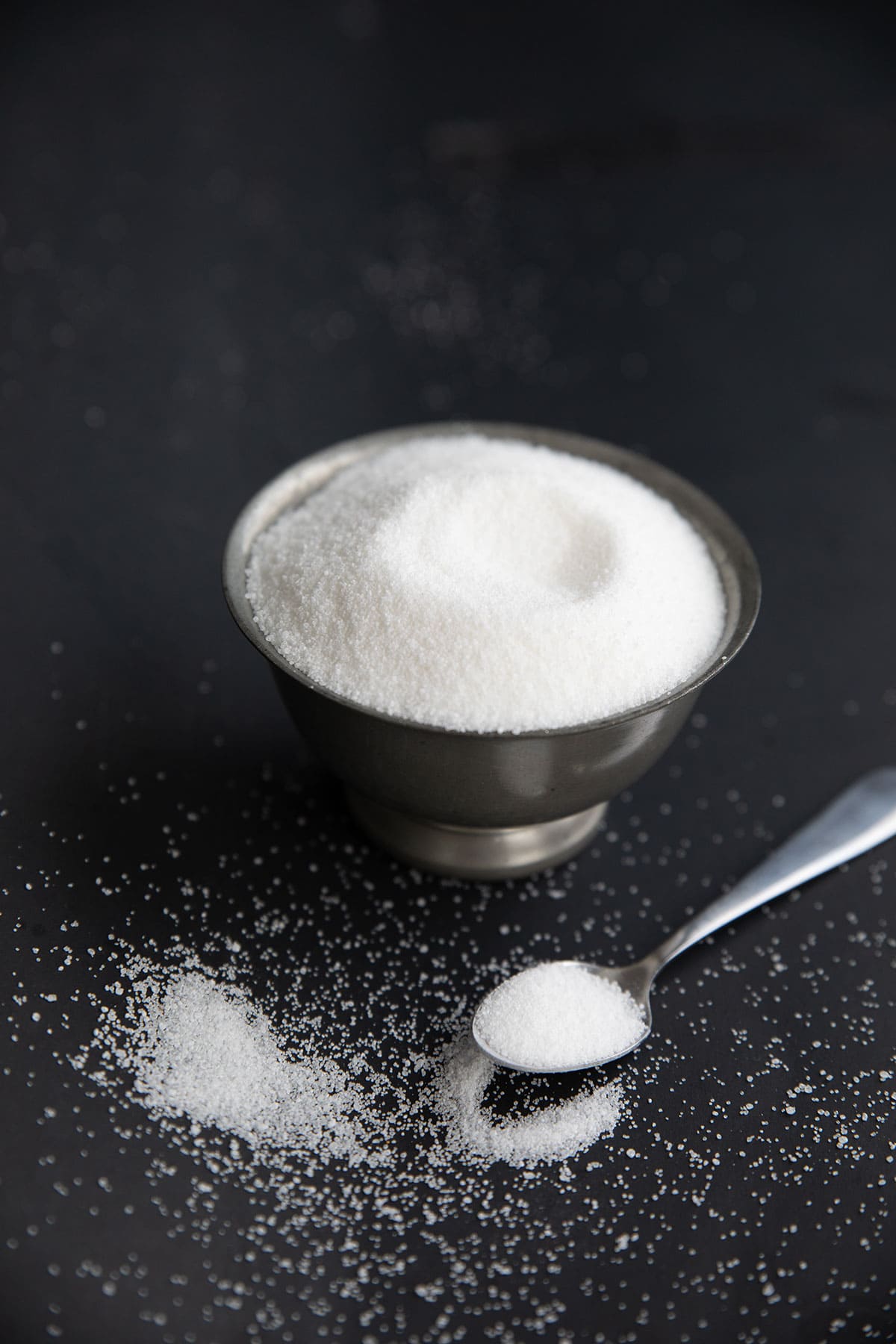
Should you avoid erythritol?
None of my study analysis is meant to downplay the potential health risks of consuming erythritol. The recent studies do bring up some serious concerns about the use of alternative sweeteners. So should you avoid it altogether?
I know you want me to give you definitive answers on this matter, but I simply can’t do that. The intent of this article is to give you some context so that you can make a more informed decision. We all must evaluate our own comfort level with any dietary choices that may have associated health risks.
As keto and low carb dieters, we do this all the time as it is. We are constantly bombarded with warnings about how much fat or salt we eat, or how we don’t eat enough fiber to be healthy. Or how carbs are NECESSARY for survival. Or how ketosis is bad for you.
I have been consuming erythritol for over 14 years. While I haven’t had my blood tested for platelet aggregation, I haven’t had any signs of adverse health effects. Mind you, I don’t consume the 30g they tested in one sitting, and I’d say it would be a very rare occurrence that I consumed that much in a whole day. But I do consume moderate amounts with some regularity.
That said, I started to cut back on my own consumption after the observational study came out in 2023. I have not eliminated it but I often cut it with other sweetener options such as allulose, and sometimes with stevia extract. I am a huge fan of the SweetLeaf Sweet drops for an added boost of sweetness and keep the little squeeze bottles in my purse and my baking cupboard.

Erythritol in keto desserts and treats
So what about all the wonderful keto cookies and delicious treats on this website? Will I stop creating them? That would be a firm HELL NO! Because that would essentially take most of my joy out of life.
Will I stop using erythritol sweeteners altogether? No, because sometimes erythritol is the best sweetener for the job. If you follow me, you know that I am a stickler for texture and consistency. And if you’re looking for a crisp texture for in a recipe like keto shortbread cookies, only erythritol will work.
But I am being much more mindful of how much I use in any given recipe. I also try to provide as many sweetener options as I can in the Tips section of each blog post. I can’t test every possible variation myself but I can give an educated guess as to the outcomes and any accommodations you might need to make. I started this practice quite some time ago and will continue to do it.
I have created an enormous number of recipes over the past 14 years, some of which live on this website and many of which do not. I cannot go back and fix every recipe already existing on my site or in my keto cookbooks. But I try to address these things as they come up.
Is this my final word on the situation? No, because it is emerging and changing as we speak. There will be future research and studies that may give us a clearer picture of the risks of consuming erythritol. I am going to do my best to stay abreast of it as much as possible and I am certainly open to discussion and hearing your thoughts too.

Free Bonus: Secrets to Keto Baking!
Sign up for your favorite recipes delivered straight to your inbox plus get our FREE bonus: Secrets to Keto Baking!

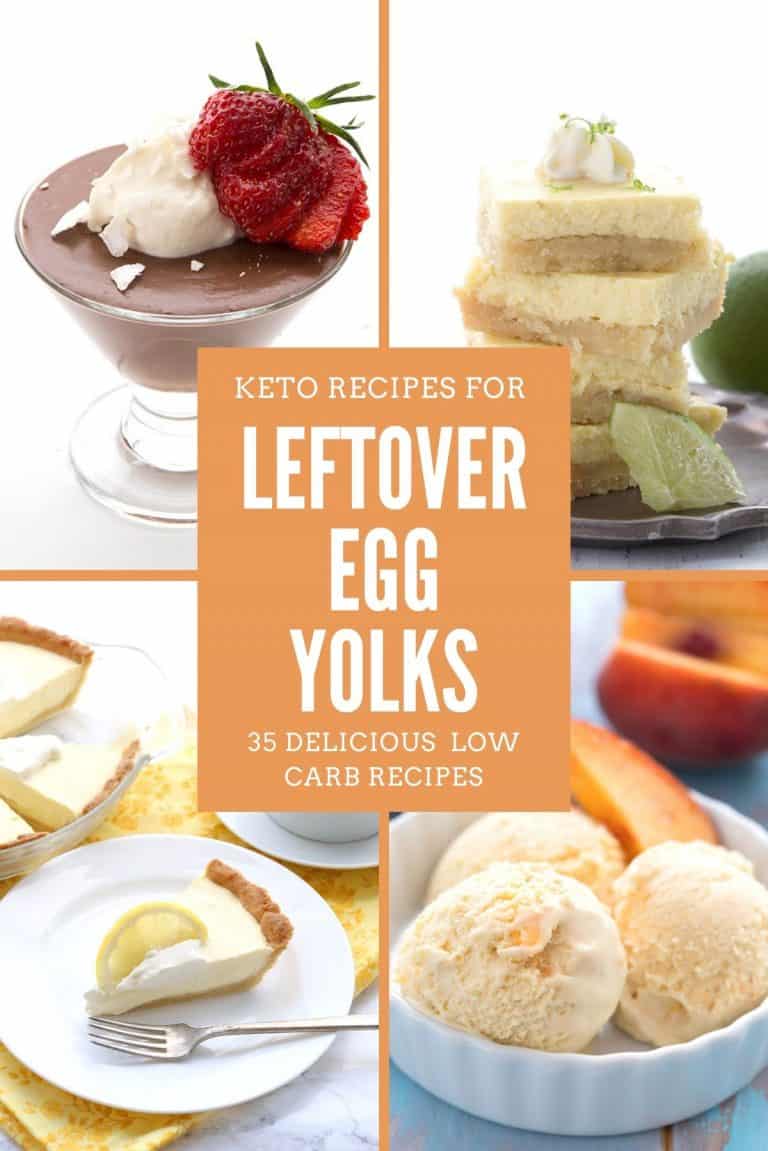

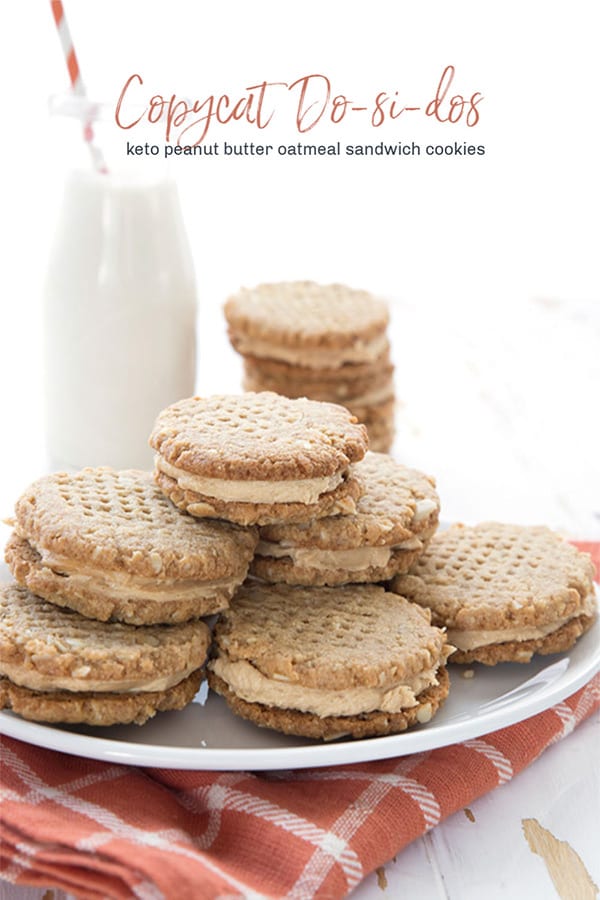


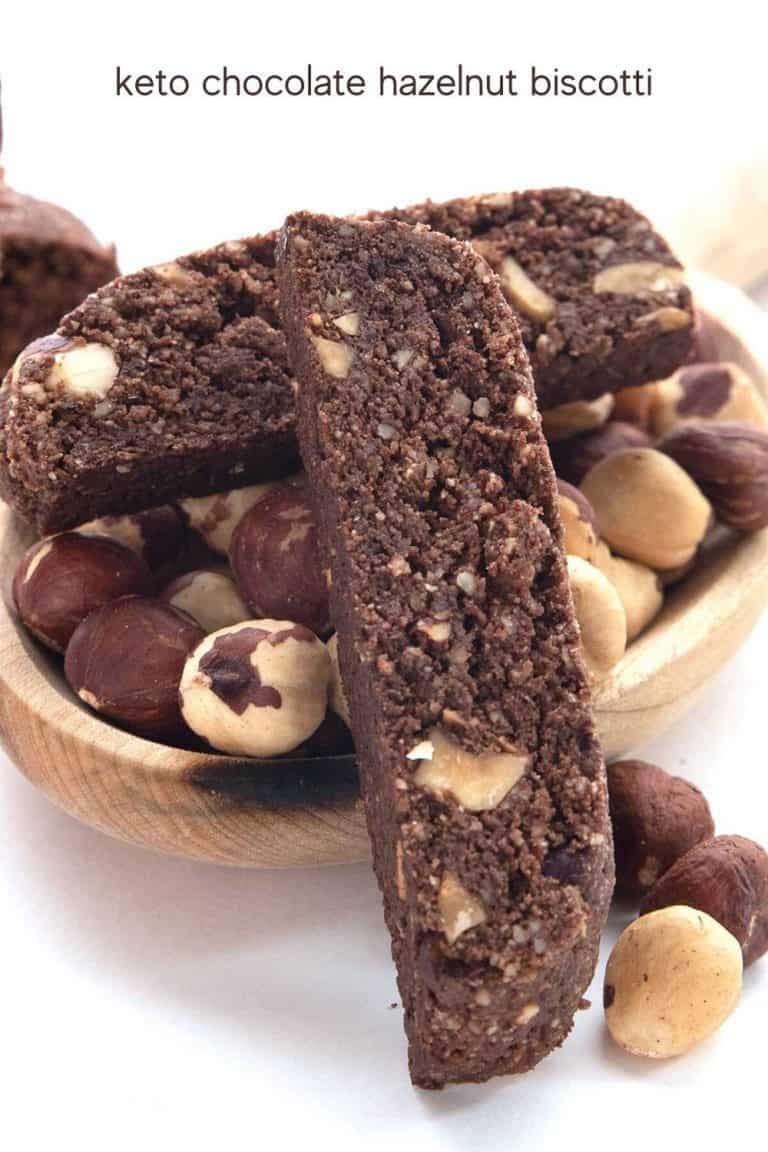









I’m going to continue to use it. Best alternative out there.
These “studies” are highly suspect for many reasons, including small sample size of “study”. Further, even *if* a *risk* is raised, it’s a risk not a determining factor. Likely far more of a risk with uncontrolled diabetes. I am not taking meds (many of the medications for diabetes cause the very problems they were ostensibly designed to eliminate, except for the making money part…) and stick to the keto diet as best I can.
Studies such as these are not reliable and need far more research, including replication by another group under identical conditions with a far larger sample size. Risks are often also overstated or understated (relative vs. absolute) to suit an agenda.
One, even two studies are hardly enough to make the assertions they have made. So I will not hesitate to use the best tasting and best for my digestive tract sweetener that I need. Scaremongering really does usually have an agenda—like keeping people eating sugar or another brand of alternative sweetener.
My two cents.
Thanks for the perspective, Carolyn. I might also point out that while we may not know the long term effects of sugar substitutes, we have a great deal of data on the long term effects of sugar. If you’re choosing sugar over erythritol, you are still risking MI and CVA, as well as Diabetes, Alzheimers, cancers, obesity, PVD, PCOS, renal failure,…..
All true! I didn’t want to get into that at this time…
Thank you Carolyn! Erythritol is the is the only sweetener that doesn’t give me stomach issues. I really appreciate your effort to put in perspective the scary test results. I intend to continue to use the sweetener as I have been for the last 5 years or more. When I started to brew homemade Kombucha the stories written about it ranged from rotten teeth or even death. Guess what even at 79 years old I have no rotten teeth and apparently am still alive as of this writing. This proves everything needs to be questioned these days. Thanks again for all your efforts to keep us informed.
Thanks, Carolyn, for this information and for your thoughts on this subject. You have earned my trust with your killer Keto recipes as well as your tips and instruction along the way. This discussion has encouraged me to take into account the amount of erythritol we consume every day and to make an informed decision. Thanks agin for the effort you put forth to keep us informed.
Thank you Carolyn for your thoughtful discussion on this recent study and your link to it! Out of curiosity who sponsored this study …… that to me is another important piece of information, big money in the alternative sweetners market. I trust few and I agree, we all need to be informed to make the best decision for ourselves.
I appreciate your recipes and hard work. I am fairly new to the keto, low carb lifestyle and need these alternatives as I lose weight and move to maintenance in this new way of eating. I will say from my readings, that I am leary of Xylitol (BocaSweet) and appreciate your tips of substitution in your recipes. I have learned from you about the characteristics of alternative sweetners and how to use them, so again thank you.
Thank you so much for being our Keto advocate and sharing the study with us. As a nurse, I look at studies and say that it doesn’t sound scientific. They aren’t “clean” test groups. You have done that and it makes sense. Keep up the good work. If I’m going to die of something let it be a delicious Keto dessert! 😂😂
I appreciate your comments on erythitol. I had just started using it when this study came out. Unfortunately my husband is a high risk for stroke, but I have not cut it out entirely. I try to find products that have another sweetener, but they usually don’t tell me how many grams each one is. I really would appreciate alternatives to erythitol when possible or even how another sweetener would affect the dessert. I usually avoid recipes that only use erythitol. I just ordered allulose, but haven’t researched how it works in recipes that call for erythitol. I just started using some of your recipes.
I wonder who funded this study. That is something else to keep in mind. As much as we’d like to think that scientists are altruistic and out to help humanity, they’ve proven time and again to manipulate their outcomes to get the results that their finders want.
*funders
Thank you Carolyn for all your research and great information. Studies like this often generate news hype without all the facts. I appreciate all you do for us.
Thank you for this article. After reading that study I was left with a lot of erythritol, as I tend to buy in bulk when it is on sale. Blending it with other sweeteners is a good idea. This definitely eases any concerns I had.
I really appreciate your comments in this case. Thank you
Yes it is safe?…Yes…As long as you are fast on your feet, live alone and could spontaneously run into your bathroom on a second’s notice…
Very few people experience GI distress from erythritol.
Thank you, Carolyn. Everything you said makes perfect sense. I read a lot of “warnings” and not just about artificial sweeteners. And you know how it’s always been, don’t drink coffee, no, it’s ok to drink coffee, don’t eat eggs, no, it’s ok to eat eggs…the list goes on. I was 100 lbs overweight, very unhealthy and too tired to be very active, still want to lose 20 more but my blood work all comes back perfectly, my ekg is great, cholesterol is perfect, I see my heart doctor every 6 months, he agrees with my way of eating. I’m 76 years old and can work circles around many younger people. Thank you for all you do.
I depend on your recipe assistance as well as your general thoroughness and advice. Thankfully, you care enough to delve into this sweetener issue.
Most welcome!
Thank you for your insight. Though aware of these studies, I continue to use erythritol in all your recipes that call for it, as well as my daily coffee. Is it blind faith? Maybe. Though I feel it may be more of a logical thought process for me. I don’t feel any effects from erythritol use, and don’t expect any. Your site and books have helped guide my family to a healthier, more flavorful nutrition plan. Always looking forward to your next recipe and/or book release. Keep doing what you’re doing!
Thank you so much for chiming in on this study. I’ve been looking for opinions on the study and there has been little discussion that I’ve been able to find, unlike with the previous study. With sucralose and erythritol having potential warnings, there is limited choice. I do try to use allulose whenever possible (I’m sure there will be a warning with it soon too). I’ve been unable to figure out how to bake with pure stevia (any advise on how to substitute?). As a diabetic who has gotten off of insulin and tablets, I appreciate all you do.
Pure stevia is tough because it has no bulk… in other words, it only sweetens, it doesn’t contribute to consistency. So I don’t use it on its own, but rather to cut back on other bulk sweeteners.
Your article is greatly appreciated. Thank you for your time, effort and.thoughtful analysis. I’m grateful that you took on the task to dive into the studies on our behalf.
Most welcome!
Thank you for this very clear discussion of the study and for presenting the facts in an unbiased way so that we can all make informed choices. Personally, I have chosen to continue to use Erythritol, but I am more often using different blends of sweeteners, depending on the outcome I’m looking for. Perhaps there is some risk, but there was definitely risk in being 100 pounds overweight and pre-diabetic. And cane sugar certainly presents its own risks as well. The moderate inclusion of treats and desserts has helped me stick with keto for seven years. Your recipes in particular, Carolyn, are lifesavers. I made the baklava bars for the first time this past weekend, and they were awesome! Went perfectly with my Greek themed meal. Thank you for all you do for this community.
Thank you for this information, Carolyn. I appreciate the extra information!
You are most welcome!
I’ve been following the studies as well. Personal conclusion: limit the amount of Erythritol. Not fearful, just cautious. 30g is a lot of sweetener not matter how you slice it, whether erythritol or otherwise. Just be sensible.
Exactly!